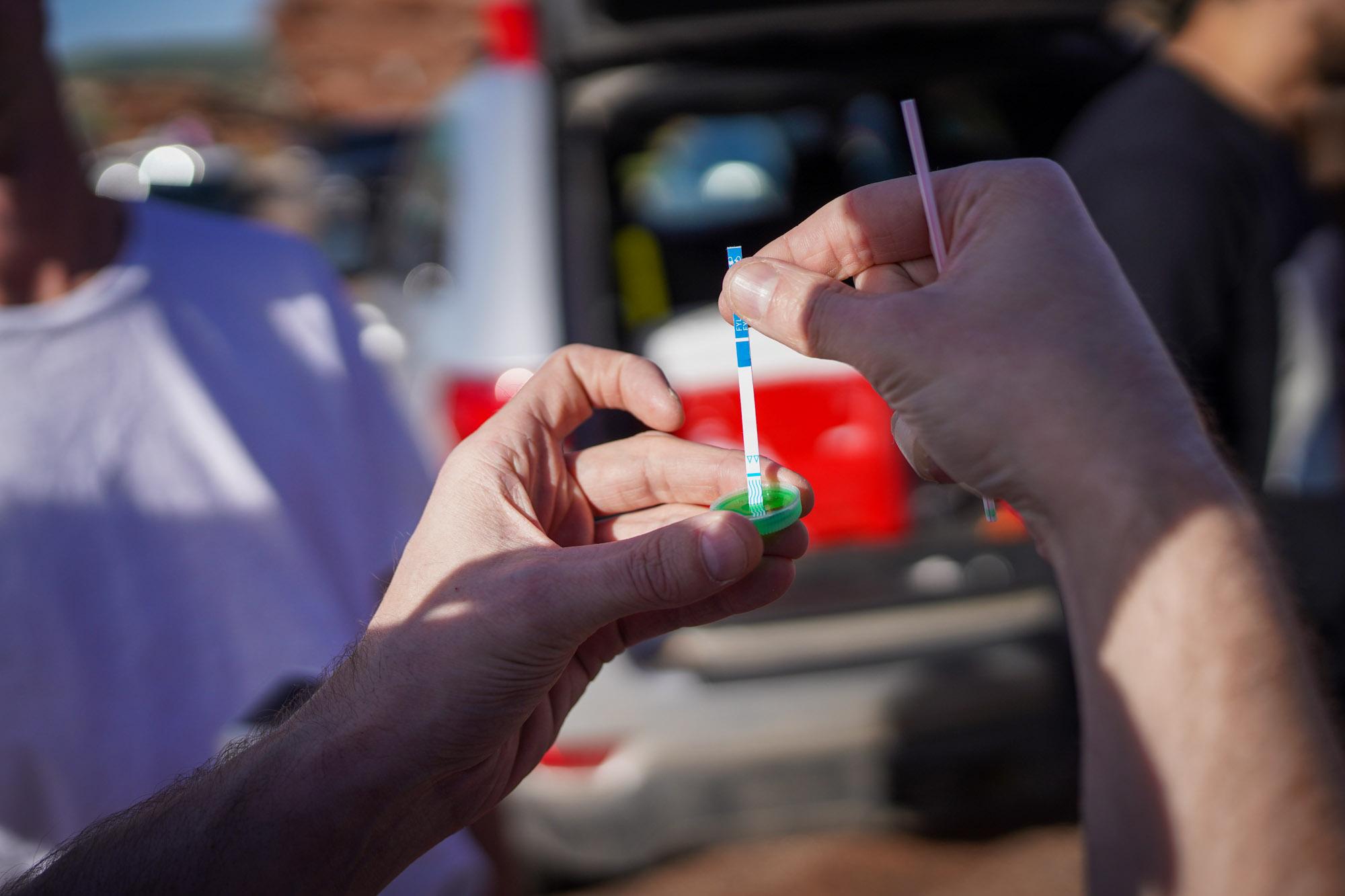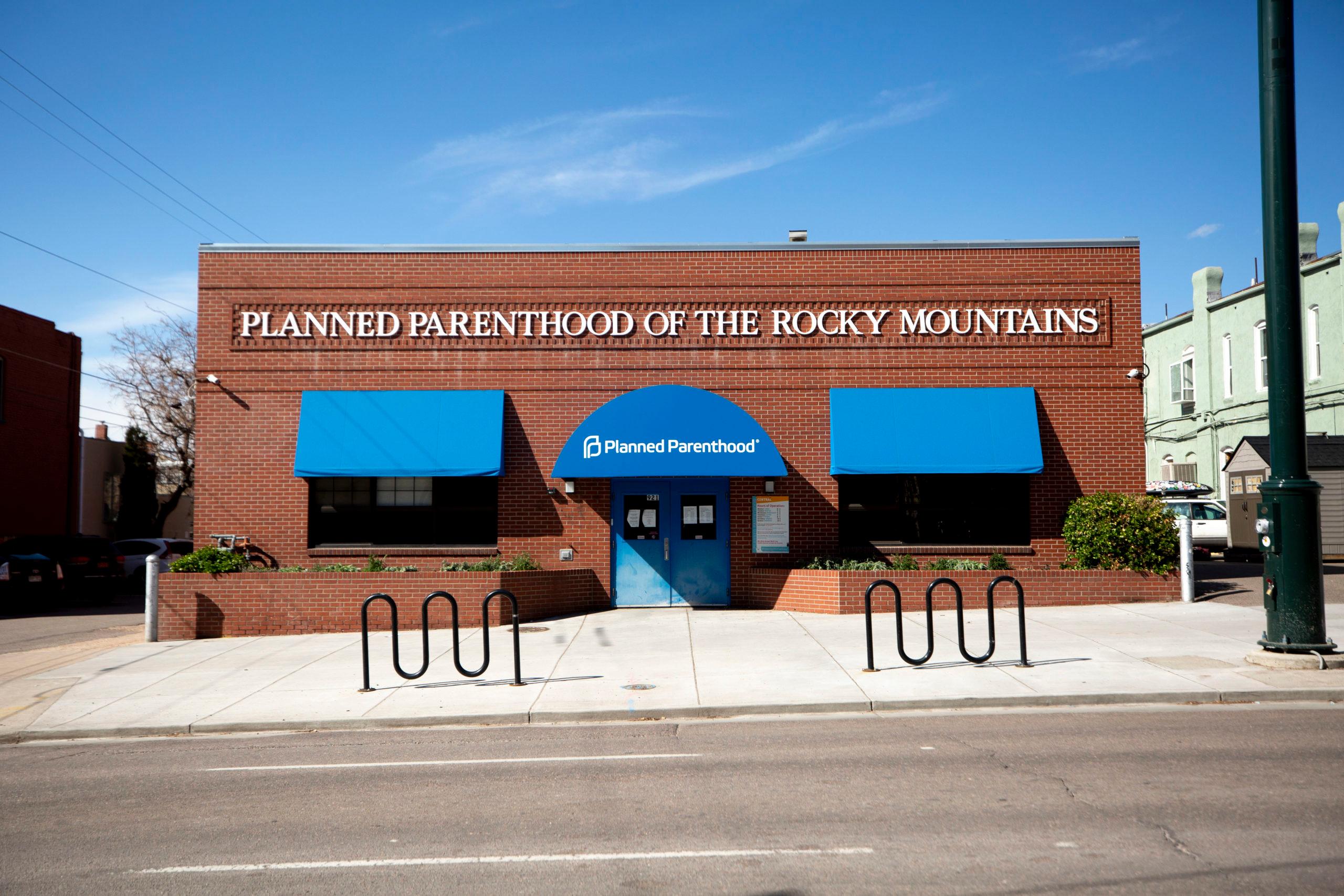
Dr. Rahul Gupta says the north star for the Biden Administration's drug strategy is saving lives.
Gupta, director of the White House National Drug Control Policy, was the keynote speaker at Friday’s National Association of Counties meeting in Adams County. As a former local health official himself, he said he understands the challenges counties are facing.
He told the crowd that President Biden’s National Drug control strategy is about beating the overdose epidemic. According to the White House, drug overdoses claimed approximately 107,000 lives from January 2021 to 2022.
“This is not a red state issue or a blue state issue. This is America’s issue,” he said.
The administration’s focus is on two drivers of the epidemic: untreated addiction and drug trafficking.
A lot more money is coming for drug prevention, treatment and recovery
Talking with CPR News before his address, Gupta pointed out that Biden’s budget request included a $3.2 billion increase for drug control, with a focus on prevention, treatment and recovery infrastructure.
“We want to work with local government, state governments, tribal governments, and tribal nations to make sure that we have the infrastructure available to treat people when they need the help,” he said.
That’s welcome news to John Swartout, executive director of Colorado Counties, Inc. Counties and their public systems are often on the front lines of drug addiction and treatment. Swartout said in some rural parts of the state people must travel hours for help with drug treatment. He cited people in northeast Colorado traveling to Greeley, as one example.
While money has come to counties from the opioid settlement and the American Rescue Plan has helped set up infrastructure for treatment, counties will need help maintaining it.
Additionally, Gupta said the administration was working to make permanent telehealth provisions started during the pandemic.
“We know that for a lot of these areas, which are rural in nature across the nation, especially in Colorado, we need to be able to help people when they need it and where they need it,” Swartout said. “One of the ways to do it is making sure that we have flexibility in terms of telehealth, including audio consultation.”
The ultimate goal is to ensure that everyone who wants treatment is able to get it, Gupta said.
Fentanyl is top of mind
The ongoing fentanyl crisis was also on the minds of many local officials. Swartout added that fentanyl is having a catastrophic effect on a wide swath of the population in Colorado. Data from the Health Institute Colorado show overdoses from the drug increased 10 times since 2016.
While Swartout’s membership may have different views on the root cause of why the drugs are entering the country, “they do agree on the impact that it’s having in Colorado and looking to the federal government to come up with some rational policy for us,” said Swartout.
Gupta added part of the way to address this was to make sure that people are aware of the dangers of the synthetic drug and that it could be found in counterfeit pills. He stressed the importance of going through a prescription process. He also reminded people that it’s showing up in the drug supply, sometimes unbeknownst to buyers. He said it’s important that people test their supply with fentanyl test strips.
He also urged local leaders to make naloxone, the antidote for overdoes, accessible in their communities.
“It’s going to save lives. It’s cost-effective.”
Gupta added the administration is also working to disrupt transnational criminal groups and their supply chains.
Swartout said he was glad Gupta is in Colorado and working with counties, and “bringing attention to these issues.”








